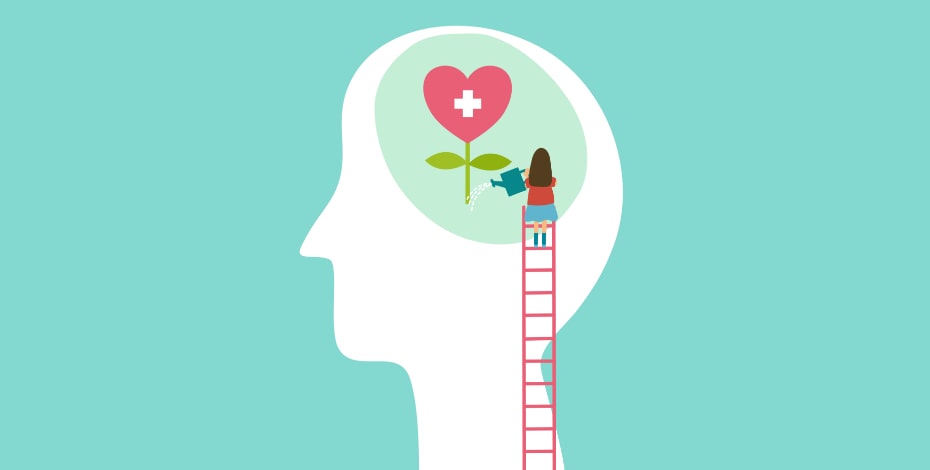
No health without mental health

Mental health is the focus of the Victorian Branch Winter Breakfast that returns on 20 August after a pandemic-enforced hiatus in 2020.
Physiotherapists continue to join a national population adapting to a new life filled with isolating lockdowns, for some a loss of business and work opportunities, and an ongoing concern for the unknown future.
Uncertainty can bring new challenges, such as coping with mental health.
The topic will be discussed under the theme ‘There is no health without mental health. Thriving as a health professional.’
Psychologist Dr Litza Kiropoulos and physiotherapist Tristan White will discuss their experiences and how to stay mentally and physically healthy.
Dr Litza Kiropoulos
‘Compassion fatigue—what it is, how to identify it and how to put strategies in place to manage and prevent it in the physiotherapy workplace’
Psychologist Dr Litza Kiropoulos is an advocate for balancing a strong mind and body.
The senior lecturer at the University of Melbourne has more than two decades of clinical experience working in public mental health, and says health professionals need to focus on self-care as they support people in times of poor health and when experiencing trauma.
‘It’s called compassion fatigue and it is a cost of caring.
It’s a fatigue that health professionals experience when managing certain types of patients or when patients have a lot of emotional content.
You cannot expect to be around loss and suffering each day and not be affected by it.’
Litza has developed short courses for health professionals and those in training in the areas of compassion fatigue and managing depression and anxiety in chronic illness.
‘Physiotherapy is known as a physically demanding profession, but in these heightened times there has been a shift in how they provide care in a hospital or clinical setting, and this would bring a lot more mental fatigue and the emotion that goes with it, too.
Physios are humans, so they are also having to deal with and balance priorities, just like the rest of the population.
But with a support system they can learn to navigate and prevent compassion fatigue in their workplace.’
This includes having management strategies in place to support positive mental and emotional health, separating work and home, undertaking exercise to release stress, balancing priorities and recognising when you are ‘not doing all right’.
‘This is noticing changes in yourself, such as not concentrating, having feelings of hopelessness and helplessness, and not really being interested in things anymore.
Individuals may find themselves drinking too much, eating poorly or not fulfilling the roles they previously were.
I think that’s a sign that maybe there’s more going on for you.
‘If you’re in it for the long haul, you need to have management strategies that work.’
Tristan White, APAM
‘A leader’s approach to a strong mind and body’
Tristan White describes himself as a physiotherapist who fell into a career as an entrepreneur.
Within a few years of graduating, he took a passion for helping older people achieve meaningful health goals and established a national healthcare business called The Physio Co.
After growing and maintaining a sustainable business, Tristan realised he wasn’t achieving meaningful goals in his own life—mentally, emotionally or physically.
This was despite completing an ironman triathlon in 2012.
‘After completing that event, I didn’t stick to a fitness routine for more than a month or two at a time.
I then had a 10-year personal battle with boom-and-bust health moments, brought on by some unhealthy habits as I balanced the challenges of family, business and marriage,’ he says.
These included negative thoughts, anxiety and defaulting to bad food or alcohol to ‘soften the edges of my pain’.
Today he is ‘in the middle of changing all that’ and will share ‘real-world research’ in his talk ‘A leader’s approach to a strong mind and body’.
‘To have a fulfilled, fun and sustainable life, a strong mind and body are needed.
But as busy professionals, as I discovered, it can be either a boom moment or a bust moment—we are doing great with exercise, diet and self-care and then we’re not.
So, what can we do to disrupt the boom-bust cycle and get our health on track in a no-fuss, sustainable way?
‘I recommend three things: have something meaningful to work towards, have a health and fitness plan that is simple and easy to follow, and make sure you have accountability and support from other leaders with similar dreams and demands.’
Building a stronger body and a stronger mind, he says, go hand in hand.
‘When my physical health deteriorates, my mental and emotional health usually join in the downward spiral.
That is, the bad moods, negative self-talk and delaying all come rushing back.
‘It’s sad to be boom or bust, but through these three things you can start to have small moments to start to build a stronger body, which will also help to build a stronger mind.’
The physiotherapist discovered his circle of support when he formed a group that could engage through an app to complete an ongoing ‘three-piece’ health challenge.
His first task was completing three deep breaths, three push-ups and three planks each day.
Over time the challenges became more intense to build physical and mental strength.
‘I had group support and we connected through the app.
The exercises were simple and planned, and I had accountability because I had to tick off the challenges within the app.’
Some members are building towards a distance run later this year.
They’re staying accountable through the app.
‘It’s an achievement that won’t be defined by KPIs or testimonials, but you’ll sense it in your physical and mental strength, and that’s good news for everyone around you—family, friends, team, clients and peers.’
‘There is no health without mental health.
Thriving as a health professional’ is the theme of the Victorian Branch Winter Breakfast, which is to be held on Friday 20 August, 6.30am–9am at Leonda by the Yarra.
Click here to book.
© Copyright 2025 by Australian Physiotherapy Association. All rights reserved.





